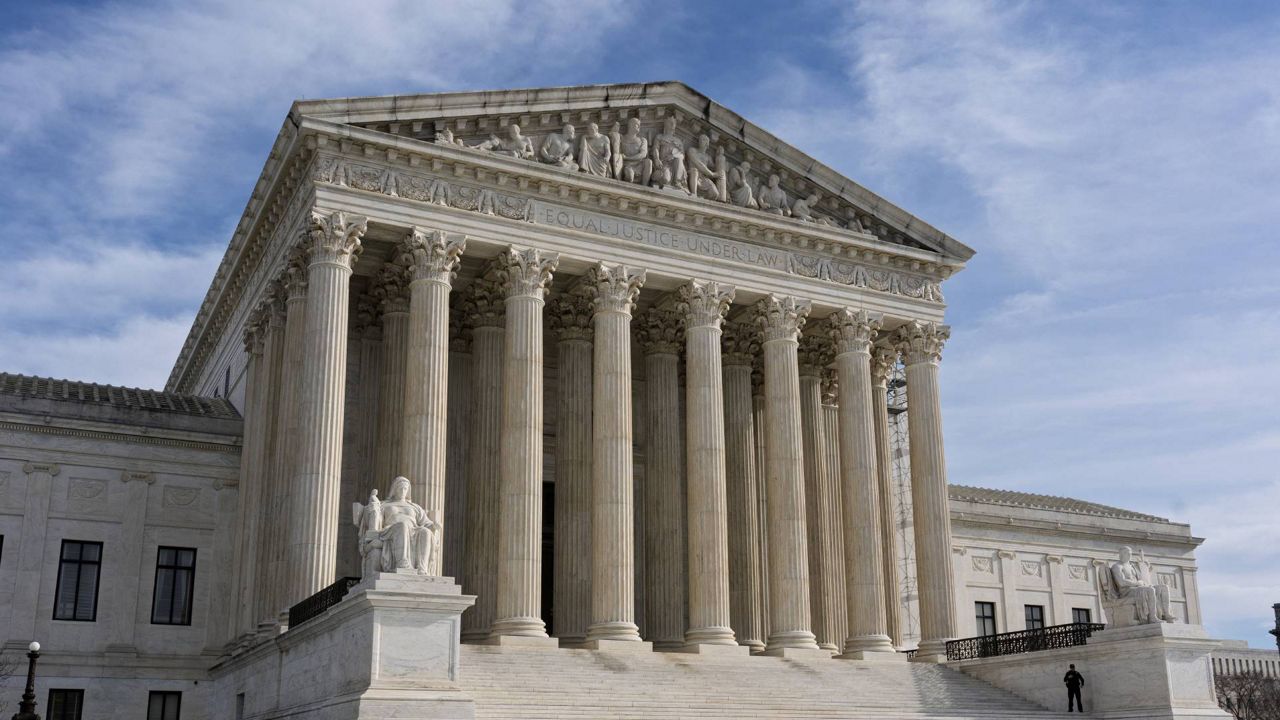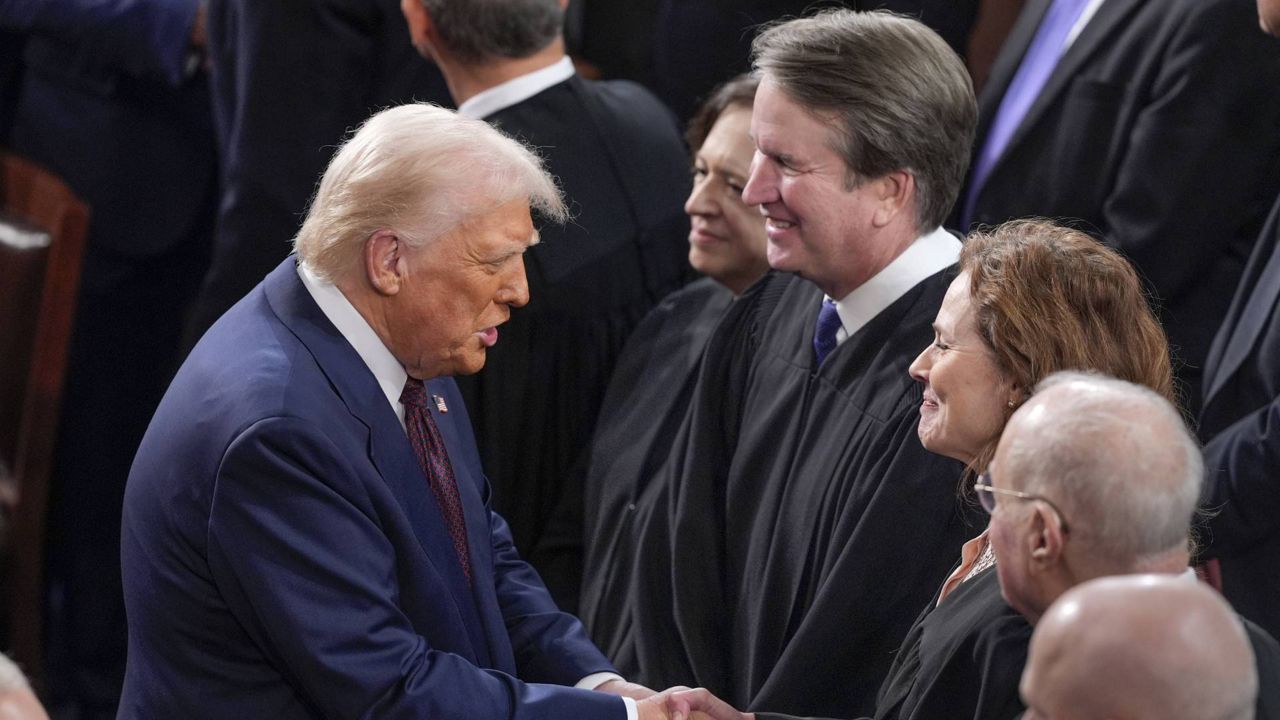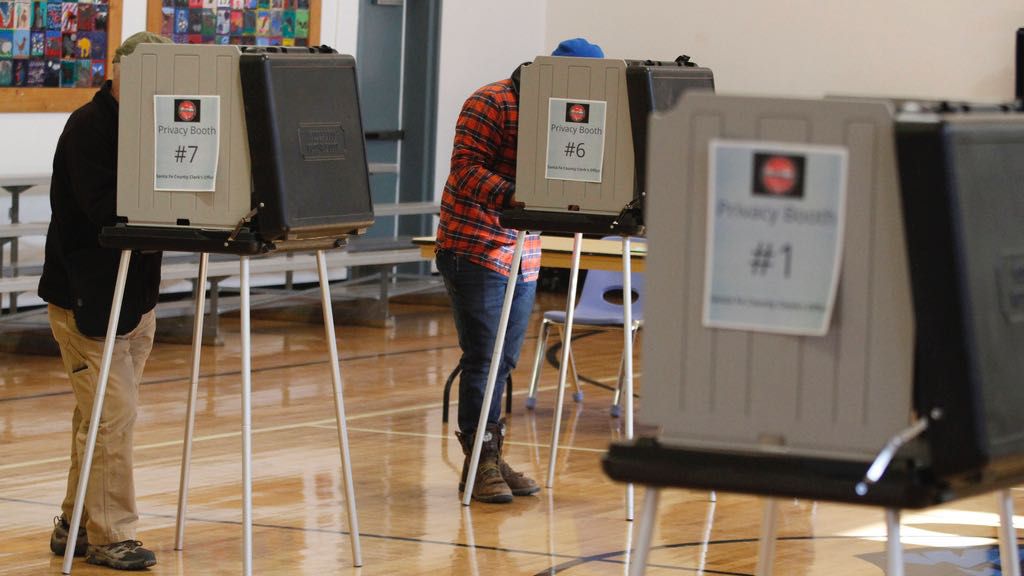The road to the presidency this year runs through a handful of battleground states that are expected to be tight fights for both President Joe Biden and former President Donald Trump.
And if the road to victory runs through battleground states, then Latinos — the youngest and fastest growing ethnic demographic in the country — could be the gatekeepers.
A series of analyses surveying likely Latino voters in Arizona, California, Georgia, Nevada, North Carolina and Pennsylvania published earlier this year indicate growing concerns about housing affordability and the economy as their top issues looking toward the November presidential election.
"The number one issue was inflation. And when we dug into those numbers a little bit deeper, what we saw was that when you ask prospective Hispanic voters about inflation, nearly 80% of them were really talking about housing," said Sam Kenney, a senior housing policy analyst at UnidosUS, the country’s largest Hispanic civil rights and advocacy organization.
Homeownership is a central pillar of UnidosUS’s advocacy agenda, in large part due to the way homeownership helps families build intergenerational wealth.
"This is true for everybody, but it’s particularly true for the Latino community, who has more of their wealth held in the equity of their home than compared to other demographics," Kenney said. It’s a key prong of the American dream — buy a home, live on your own property, develop community and pass the value of your home on to your descendents.
The Biden administration has made homeownership and the generational wealth it leads to a priority — both in action and messaging — over the last three years.
"What my dad used to always say was that the way you build equity in your home is the way you build wealth. So when you build enough equity in your home, then you have enough money to borrow to get something new and move," Biden said in a speech discussing his economic agenda before union workers in Nevada earlier this year.
In a report published last November, analysis firm Intercontinental Exchange noted that homes were at their least affordable since 1984. And in a blog post published earlier this year, the Urban Institute noted that homes are less affordable than at nearly any point in the last three decades. An article from the Urban Institute published earlier this year observed that younger people have lower homeownership rates than those of previous generations, and that the racial homeowner gap — the proportion of homeownership between white, Hispanic and Black Americans — remains a wide gulf.
A series of policies announced during Biden’s State of the Union, including plans to offer mortgage relief credits for first-time homebuyers, sellers of starter homes and a first-generation down payment assistance program, should narrow that gap, the report notes.
As of Dec. 2023, the homeownership rate for white Americans is 73.8% of the population, per the Urban Institute report; for Black Americans, it’s nearly 46%. But Latinos have seen year-over-year growth in homeownership since 2014, with improvements every year. Now 49.5% of Latinos are homeowners, at more than 9.5 million owner-households in the U.S., per a report from National Association of Hispanic Real Estate Professionals.
The Biden administration’s proposals aim to cover lack of supply, lack of affordability and access to home-buying mortgage credit, and could very well help continue narrowing the homeownership gap and the wealth gap alike. (According to a report by the Hispanic Wealth Project, median Latino household wealth has more than tripled between 2013 and 2022 — but, proportionally, for every dollar Latinos are worth, non-Hispanic white Americans are worth $4.47.)
"We know right now that there's still a significant wealth gap between white and Latino households. And we know that the housing market dynamics are shifting and that their projections say that over the next decade, and two, that about 70% of net new homeowners could be Latino," Kenney said. "And so we really see this as an opportunity to say, not only do we know this as a wealth building mechanism, but we see the opportunity they're in, in the community and what they want."
But the biggest problem in the way of home ownership is the price of homes and housing availability.
According to the UnidosUS survey, 62% of people concerned about affordable housing say there’s a lack of apartments to rent or houses for sale; the same number say that rent or homes are too expensive, and they may have to pick up and move to a more affordable place. (Sixty-two percent of those surveyed agreed with the idea that cost of living is going up because corporations are raising prices and making record profits; thirty-eight percent agree with the idea that Biden isn’t doing enough to lower costs.)
"You know, it might have been true decades ago that there was this much more housing supply, certainly in the run up of the financial crisis in 2008. That's what we saw the most supply on the books, but it really hasn't recovered since then at all. And we really haven't seen starter home supply anywhere near levels that it was for nearly 30, even 40 years," Kenney said. "So these types of homes that young families need just haven't been built on the market for a long time."
The challenge is, the federal government generally doesn’t have much of a role to play in increasing housing supply, outside of trying to incentivize builders.
Which is what Trump attempted, largely by loosening or doing away with regulations on the building and housing industries.
In summer 2020 — as he sought to paint Biden and Democrats as responsible for crime and chaos during the racial uprisings caused by George Floyd’s murder — Trump rescinded the Affirmatively Furthering Fair Housing Rule, a section of the Fair Housing Act that required local governments to prove that housing developments seeking federal funding would not be built in areas with effectively discriminatory zoning laws or regulations.
"I am happy to inform all of the people living their Suburban Lifestyle Dream that you will no longer be bothered or financially hurt by having low income housing built in your neighborhood," Trump tweeted at the time. "Your housing prices will go up based on the market, and crime will go down. I have rescinded the Obama-Biden AFFH Rule. Enjoy!" (Biden issued an order reviving the rule in his first week in the White House.)
The Trump administration also advocated for a rule to keep undocumented immigrants from living in subsidized housing, and to remove pro-rated subsidies for families with mixed immigration status.
In rallies this election cycle, Trump has suggested cutting energy costs and interest rates. "Then the homebuilders will start building again because they’ve stopped, because nobody can get money from the bank because the interest rates are high," Trump said.
However, the president can’t unilaterally lower interest rates, or prevent them from being raised — that’s the job of the independent Federal Reserve. Though the president does appoint the Fed chair and the members of the Fed’s board of governors, the country’s central bank isn’t necessarily subject to the whims of the country’s chief executive.
Though the UnidosUS poll found that some Latinos are, indeed, concerned about matters that are popularly considered Hispanic issues, the UnidosUS poll suggests it’s not nearly as important as some might suggest — only two percent of people polled said it was their top-ranked issue.
"When we're in community conversations, immigration is — of course — a topic that comes up. But it really truly is these economic kitchen table issues that folks are most concerned about and housing really being number one," Kenney said.
What remains to be seen is whose approach to kitchen table issues, and their sales pitches to the public, will resonate best with voters in November.








